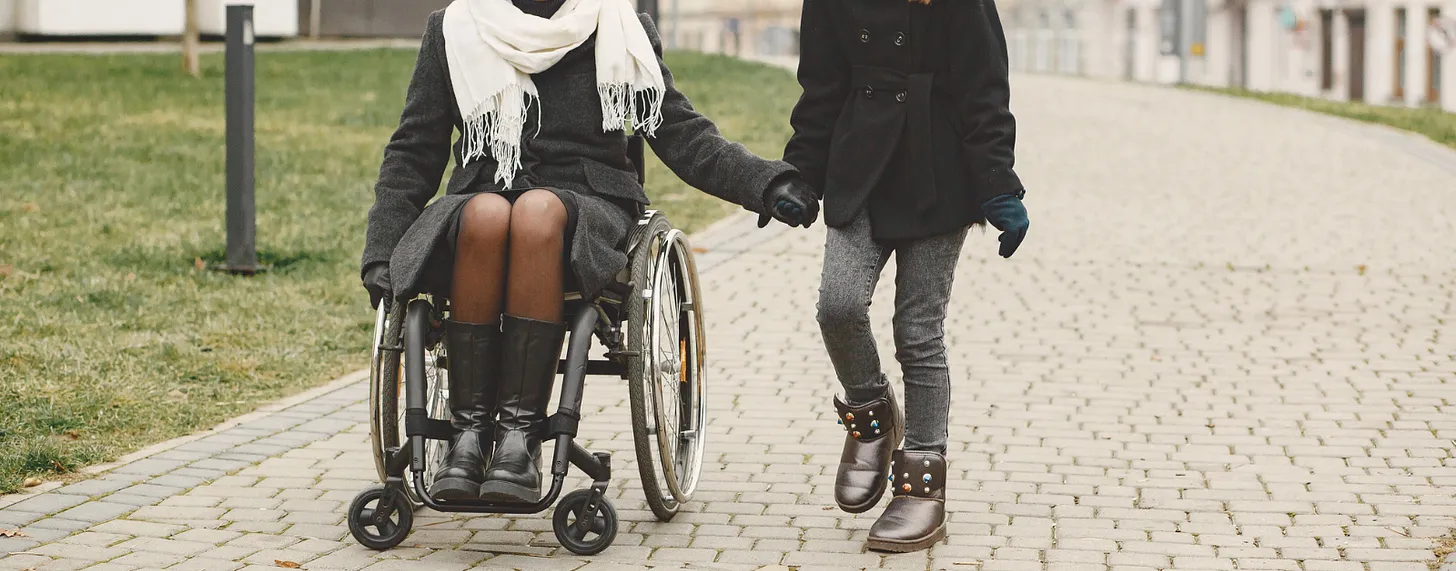I once shared a post that included a story from someone who identified as a “person with autism.” To respect their choice of words, I used the same term in my post. Later, someone who hadn’t seen the original story commented, suggesting that I should have used the term “autistic person” instead. This isn’t the first time I’ve been corrected online. I’ll admit, knowing which words to use can sometimes feel confusing—there isn’t always a straightforward answer—but it can also be a beautiful, expansive process. I’m reflecting here on words directly connected to disability, but speaking with care is a far-reaching practice that nurtures connection and shapes our culture in many different contexts.
Our words matter. The language we use often reveals our assumptions about disability. When our culture talks about disability as a “tragedy,” or when a disabled person is called “inspirational,” we can detect assumptions and even biases behind those words.
If you’re like me, you’re not always sure what to say or which words to use to cultivate spaces of belonging. Maybe you’re feeling a little cynical—like there’s too much “language policing” and we should move on to more important issues. Or maybe you feel despair—you worry that you’ll keep saying the wrong things and unintentionally hurt people.
Carrie Hahn, a pediatric speech-language pathologist and mother, joins me on the podcast to talk about her book Beyond Inclusion: How to Raise Anti-Ableist Kids. Her stories and suggestions offer ALL of us a way to put a reimagined life into practice.
Here are just a few things she offers:

Listen on Apple🎙️ | Listen on Spotify🎙️ | Watch on YouTube🎬
Individuality Matters:
Carrie reminds us that “people don’t fit in little neat boxes… A person who was born blind has had a very different experience than a person who had vision and then lost their vision.” Because every individual’s experience and preferences are different, it’s important to focus on agency, “making sure that the disabled person is in control of their own narrative and their own story.” For example, does someone identify as “an autistic person” or “a person with autism”? Respecting each individual’s choice of words is one way to cultivate spaces of belonging.
When we do get the language wrong…
Commit to Connection:
Carrie explains that she used to feel ashamed when she said the wrong thing, which led her to withdraw and distance herself. This shame created a barrier in her relationships. Over time, she’s learned to stay engaged, listen with humility, and prioritize connection over perfection.
“I’m going to try to stay in this space. Even if I feel like I might be getting it wrong, I want to continue to listen.”
It’s essential to communicate that “I care about you more than I care about the fact that I got called out.”
Expanding Our World
While evaluating our words is important, this is not a restrictive exercise. Rather, the process of choosing words that cultivate belonging is a development of the heart that actually expands our world. It brings a different sense of self and a recognition of the beauty and wonder of the humans with whom we’re interacting.
I hope you’ll watch or listen to this interview! We also discuss:
- The complexities of navigating ableism
- How to cultivate inclusion and belonging one word at a time
- Ways to respond when we get the language wrong
- Why recognizing individuality matters
- Simple tips to make spaces more welcoming and accessible (like how to plan a birthday party that welcomes all kids {25:34})
After you listen, let me know what you think. Leave a comment or reply to this email. And please share this episode with a friend.
- Free Resource: From Exclusion to Belonging
(a free guide to help you identify and create spaces of belonging and welcome)
Let’s stay in touch. Subscribe to my newsletter to receive weekly reflections that challenge assumptions about the good life, proclaim the inherent belovedness of every human being, and envision a world of belonging where everyone matters. Follow me on Facebook, Instagram, and YouTube and subscribe to my Reimagining the Good Life podcast for conversations with guests centered around disability, faith, and culture.



